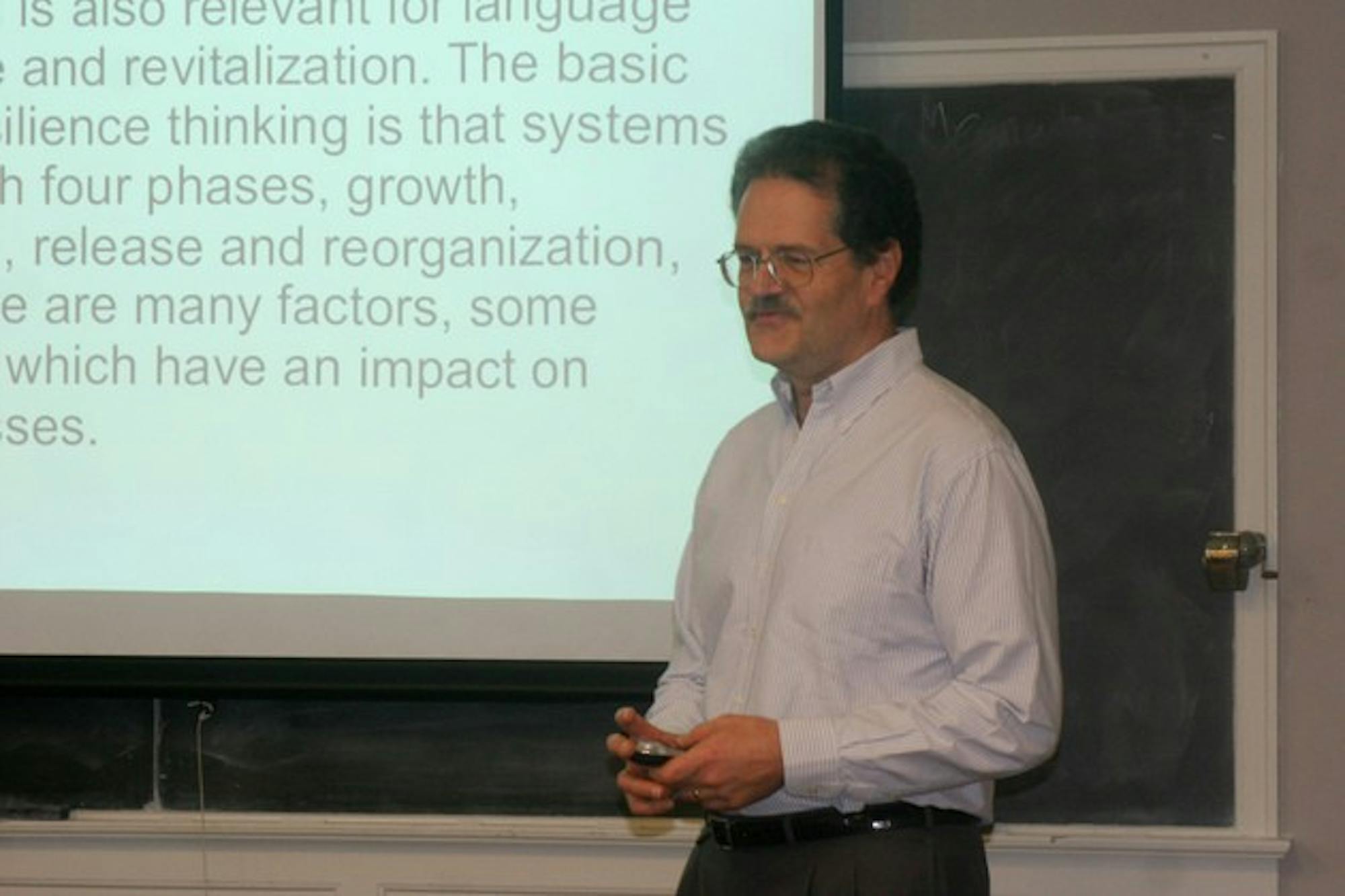Bradley drew from personal experience working with two Asian communities to explain how linguists should use documentation, interaction between isolated communities and advocacy on behalf of minority groups to help such communities.
Linguists must consider the sense of identity of the people, the vitality of the language, the setting of the community, the domains or genres in which the language exists and government policy when examining minority languages, Bradley said.
Bradley spoke about his work with the Gong community in Thailand, an ethnic group in which approximately 100 out of the 500 members speak the Gong language. Among the speakers, the approximately 50 who are fluent are mostly over the age of 60, and those younger than 30 exist only as "passive speakers," he said.
"There are problems of doing field work in communities where the last speakers are not just old but also often have disabilities," Bradley said.
The perpetuation of the language faces difficulties including the isolation of the two villages that make up the Gong community and previous government policies that required education in Thai, according to Bradley.
The Gong communities' efforts to preserve their native language were also hindered because many Thai people live within the Gong communities, Bradley said.
Bradley said that linguists can help save languages by reestablishing links between isolated villages that are unaware of each other's existence so that they can exchange ideas. He also said the choice to continue speaking the language is up to the group.
"I think one of the best things a linguist can do is train a community, get them enthused and go away, and then they have to make their own decision," he said.
Linguists can also aid native communities' efforts by helping to develop an orthography, he said.
Bradley said he thinks Gong is in a precarious situation, but he hopes that his work has helped in slowing the disappearance of the language.
"We have tried to help the community get hold of the situation and maybe at least document it and allowed them to provide their own input about the heritage materials they want to maintain," he said.
Bradley also examined a case study involving his work with the Lisu, a group of one million people spread among interacting communities in Burma, China, Thailand and India.
Although the Lisu language is not in immediate danger, the Lisu community is at risk of losing many parts of its traditional knowledge and culture, according to Bradley.
The emergence of Christianity among the Lisu has led to the disappearance of important songs, poems and stories contained in the traditional Lisu religion, Bradley said.
"We need to, I think, as linguists go out there and collect this stuff, and we have found many people who share our views and who are helping us collect it," he said.
Bradley also said that it is important to create materials written in the Lisu language in accessible forms such as song books rather than web pages.
"Lisu is not used in school." he said. "It is not normally spoken outside the village. It is not used in writing systems to write traditional materials, but at least a lot of the transmission of the language is safe."




